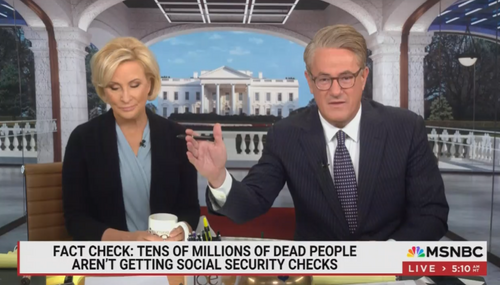The 2007 video of then-Senator Barack Obama hinting at racism in the federal government's response to Hurricane Katrina isn't the only news story that NBC's Today show stuck up its nose at during the first days of October. The morning newscast has conspicuously ignored covering the latest developments in the terrorist attack on the U.S. consulate in Benghazi, Libya. It hasn't devoted a full segment or even a news brief to the issue since September 29.
As Today devoted air time to how Mitt Romney's debate performance was supposedly "completely overshadowed" by "hunting" Big Bird, ABC's Good Morning America and CBS This Morning devoted full reports on Monday to a former security official's charge that the State Department ignored repeated requests for extra security at the diplomatic facility in Libya.
ABC and CBS's morning shows also put their colleagues at NBC to shame on Friday when they covered e-mails that showed that the State Department denied a request for increased security at American diplomatic facilities in Libya in May.
The NBC morning show started this omission trend on the terrorist attack even before their last report at the end of September. The same week the Big Three newscasts devoted 88 minutes of air time to the "47 percent" secret recording of Romney, Today failed to cover U.N. Ambassador Susan Rice's claim on the September 16, 2012 edition of Meet the Press that "what happened in Benghazi was, in fact, initially, a spontaneous reaction to what had just transpired hours before in Cairo."
The program also ignored The Daily Beast's scoop from September 26 that U.S. intelligence officials had "strong indications" within a day after the attack in Benghazi that Islamist terrorists had carried it out. ABC's Jake Tapper provided the only Big Three coverage within 48 hours of Eli Lake's article.
One might get the overall impression that NBC News is too busy trying to provide cover and excuses for President Obama and his administration to be bothered to do the real journalism on the consulate attack. As Fred Barnes pointed out in the October 15, 2012 edition of the Weekly Standard, "An obvious question arises, or at least should. Was there a cover-up? If we had a Republican president—or even a Democratic president not named Obama—the press would be pursuing that possibility with great intensity."
The full transcripts of ABC's Good Morning America and CBS This Morning's Monday coverage of the latest developments in the Benghazi consulate attack:
07:07 am EDT
ABC - Good Morning America
JOSH ELLIOT: Exclusive new information this morning about that attack on the U.S. consulate in Libya that did kill the U.S. ambassador, three other Americans there. ABC News has obtained a memo that raises new questions about whether the State Department rejected warnings from its own staff about security.
Senior White House correspondent Jake Tapper joins us this morning with those details. Good morning to you, Jake.
[ABC News Graphic: "Security Warnings Ignored? Memo Raises Questions About Libya Attack"]
JAKE TAPPER: Good morning, Josh. That's right. This memo details all the ways that the embassy in Libya thought a security support team was vital to their operations. But that team left in August, and the commander of the team told me he wanted to stay past August, and Ambassador Chris Stevens wanted them to stay as well.
TAPPER: (voice-over) In the memo, obtained exclusively by ABC News, the embassy in Libya did not mince words, requesting that the State Department keep the 16-member security support team in the country. 'Quite simply, we cannot maintain our existing levels of Embassy operations without a continued security support team presence,' the memo says. That request, made in February, was granted. But after that, security in Libya deteriorated further, with Western targets attacked.
Now, the commander of the security team - former Green Beret Lieutenant Colonel Andrew Wood - tells me he and his team wanted to stay past August, and that Ambassador Stevens wanted them there as well. But, for some reason, the State Department, he says, did not let it happen. Wood will testify before the House Oversight Committee on Wednesday.
REP. DARRYL ISSA, (R), CALIFORNIA: We need to operate, in a country like Libya, with erring on the side of security.
TAPPER: A senior State Department official tells ABC News that no official request for an extension after August was ever made, and there were just as many U.S. shooters present as before. The official denied that the State Department was too eager to transfer security to local Libyan contractors - an idea congressional investigators are exploring.
TAPPER (on-camera): And the big question, of course, is whether or not this would have made a difference. The State Department says no - the security support team would have been in Tripoli that night of the attack. But Lieutenant Colonel Wood tells me the last time that Ambassador Stevens was going to go to Benghazi, the security support team was going to go with them - although that trip was scrubbed. Josh?
ELLIOT: We will be looking ahead to that testimony. Jake Tapper, there in Washington, thank you for that.
07:00 am EDT
CBS This Morning
O'DONNELL: The former top security official for the U.S. ambassador to Libya is testifying to Congress this week.
But Sharyl Attkisson spoke with him on Sunday. She's in Washington with an interview you'll see only on 'CBS This Morning.' Sharyl, good morning.
[CBS News Graphic: "Deadly Libya Attack: Official To CBS News: Staff Pleaded For Security"]
SHARYL ATTKISSON: Good morning, Norah. Andrew Wood is a highly-decorated special forces Green Beret with counter-terrorism expertise, who headed a sixteen-member security team in Libya. He met daily with U.S. Ambassador Christopher Stevens, who was killed, along with three colleagues, in the assault on the U.S. compound in Benghazi. Wood says the State Department initiated an ill-advised draw-down of security in the six months before the assault. One month before the attack, Wood's military team and the last of three SWAT-style State Department teams left Libya.
ATTKISSON (from pre-recorded interview): When you found out the last two teams were being pulled from Libya, what was your feeling about that?
LT. COL. ANDREW WOOD, ARMY NATIONAL GUARD: I felt like we were being asked to play the piano with two fingers. There was concern amongst the entire embassy staff. I had people come and ask me that as well-
ATTKISSON: What were they saying?
WOOD: I – I didn't feel good about – they asked if we were safe. They asked if – if – what was going to happen? And I could only answer that what we're being told was, they're working on it. They'll get us more. But I never saw that.
ATTKISSON: Ambassador Stevens wanted continued or enhanced security. The regional security officer wanted enhanced or continued security-
WOOD: Yes-
ATTKISSON: You wanted enhanced or continued security-
WOOD: Yes-
ATTKISSON: It was a consensus on the ground?
WOOD: For enhanced or continued – security that we had, that we had known, that we had come to live with and work with there for the environment we had. We felt we needed more, not less.
ATTKISSON: So, all the experts on the ground are telling headquarters at the State Department, we need this. And the answer kept coming back as?
WOOD: You've got to do with less. For what reasons? I don't know.
ROSE (live): Sharyl, does – do those believe that if, in fact, those security teams had not been withdrawn - even though they can't really know the answer to this - but they may very well have been able to have resisted the attack and save lives?
ATTKISSON: Well, they've certainly talked about that, according to Colonel Wood. He says he wonders - he told us - that armed members of his military team, as well as the companion State Department security team, would have traveled to Benghazi with Ambassador Wood [sic], had they still been in the country on September 11. But on that day, the U.S. was down 34 highly-trained security officers in Libya, compared to just six months before. The State Department told us they're still sorting through everything, but that they don't see evidence of a lot of security requests that were denied. Charlie?
O'DONNELL: Sharyl Attkisson, thank you.




